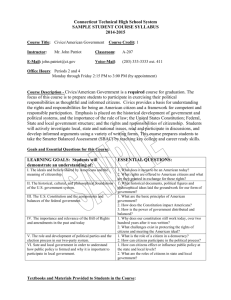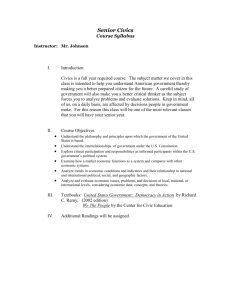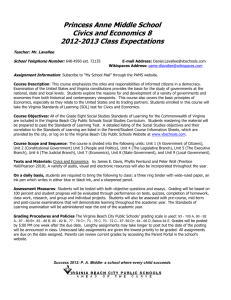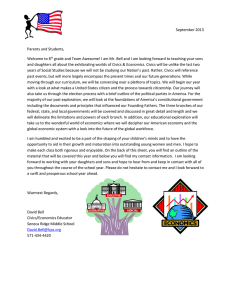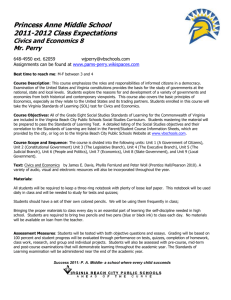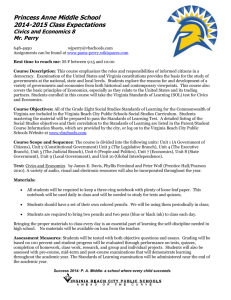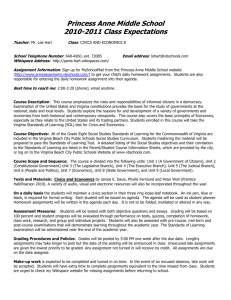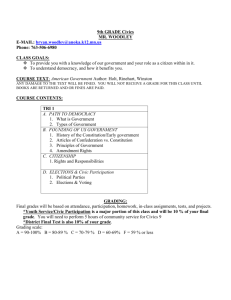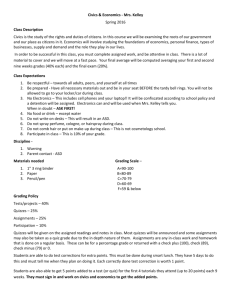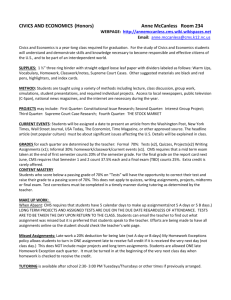Civics and Citizenship - North Yarmouth Academy
advertisement
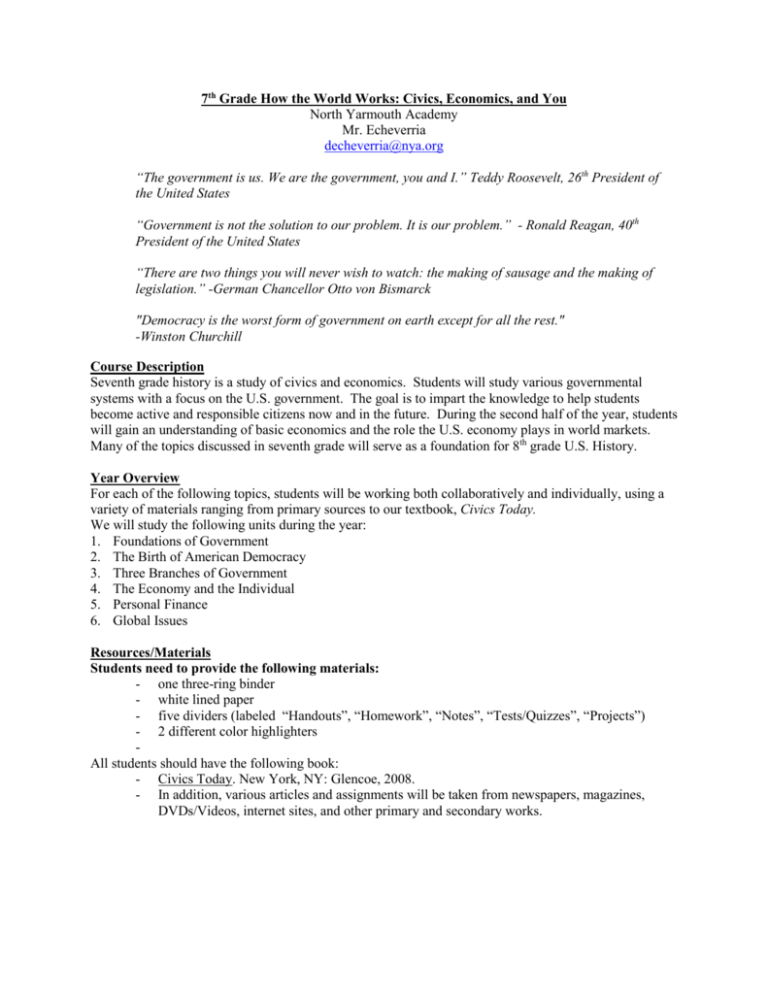
7th Grade How the World Works: Civics, Economics, and You North Yarmouth Academy Mr. Echeverria decheverria@nya.org “The government is us. We are the government, you and I.” Teddy Roosevelt, 26th President of the United States “Government is not the solution to our problem. It is our problem.” - Ronald Reagan, 40th President of the United States “There are two things you will never wish to watch: the making of sausage and the making of legislation.” -German Chancellor Otto von Bismarck "Democracy is the worst form of government on earth except for all the rest." -Winston Churchill Course Description Seventh grade history is a study of civics and economics. Students will study various governmental systems with a focus on the U.S. government. The goal is to impart the knowledge to help students become active and responsible citizens now and in the future. During the second half of the year, students will gain an understanding of basic economics and the role the U.S. economy plays in world markets. Many of the topics discussed in seventh grade will serve as a foundation for 8th grade U.S. History. Year Overview For each of the following topics, students will be working both collaboratively and individually, using a variety of materials ranging from primary sources to our textbook, Civics Today. We will study the following units during the year: 1. Foundations of Government 2. The Birth of American Democracy 3. Three Branches of Government 4. The Economy and the Individual 5. Personal Finance 6. Global Issues Resources/Materials Students need to provide the following materials: - one three-ring binder - white lined paper - five dividers (labeled “Handouts”, “Homework”, “Notes”, “Tests/Quizzes”, “Projects”) - 2 different color highlighters All students should have the following book: - Civics Today. New York, NY: Glencoe, 2008. - In addition, various articles and assignments will be taken from newspapers, magazines, DVDs/Videos, internet sites, and other primary and secondary works. Assignments Homework will be assigned almost every night. These assignments will involve a variety of tasks, including reading, composing paragraphs, identifying terms and outlining the causes and effects of certain historical events. In addition, there will be occasional essay assignments and group projects. Homework will be checked daily. During each unit covered, there will be quizzes (both announced and unannounced) and a chapter test and/or project. *Weekly Assignment Sheets will be posted online at http://www2.nya.org/decheverria/ Grading -Tests and Major Projects- 40% -Homework and Notebook- 25% -Quizzes- 25% -Class Participation- 10% Re-Take Policy If a student scores below 75% on a test or announced quiz, they will be given the opportunity to make corrections and/or retake the assessment so as to raise their grade. The highest possible score on a retaken assessment is 75%. Absences and Late Work If you miss class, please see me the day you return to school. That will allow me to fill you in on what you missed. Please be aware, however that it is your responsibility to find out what needs to be done to become current in class. A significant amount of points will be deducted for late work. Late work will receive a 1/3 grade deduction (B to B-, for example) for each day late. Late work will be accepted for a period of 5 days. After day 5, late work will be given a zero. Expectations All persons in this classroom will be expected to consistently work to be valuable members of our classroom community. That means that we will all strive to be respectful, responsible, compassionate and honest in all that we do. Respect -Expressing tolerance toward others with words and actions. -Respect our space: keep food, drinks and gum out of our classroom and put garbage and recycling in the proper containers. Responsibility -Complete all assignments on time and do your best on all your work. -Come to class prepared to learn. Always bring the proper books and supplies to class. Compassion -Being sensitive to the feelings, perspectives, and needs of others. -Reaching out to and helping those in need. Honesty -Admit when you are struggling – and come see me so we can figure things out. -Don’t plagiarize - give credit to other’s for their work if you use it. See the Parent and Student Handbook for more information about the Honor Code. Perseverance -Persisting in the face of challenges. -Continuing to do the right things when it is difficult.
